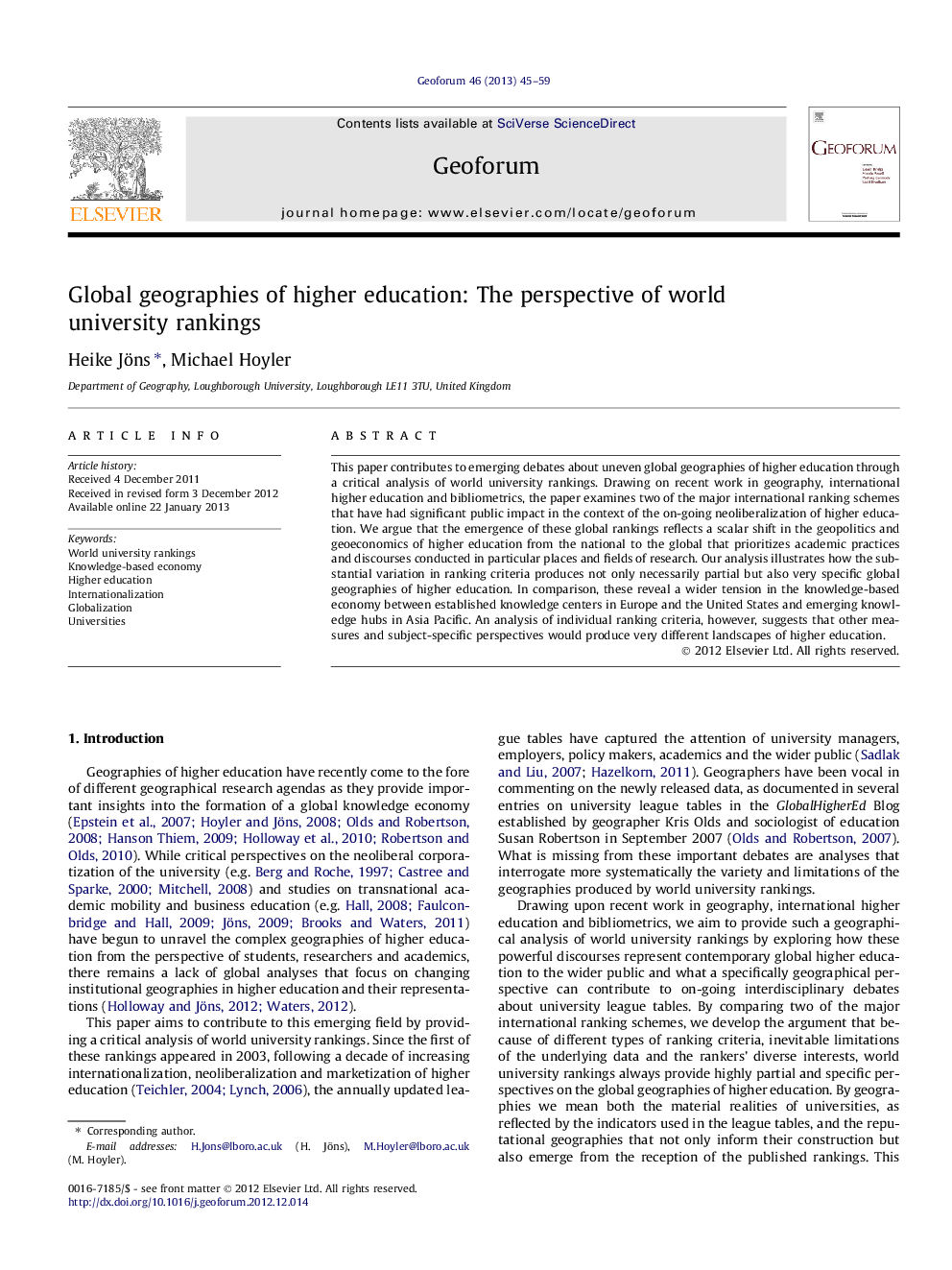| Article ID | Journal | Published Year | Pages | File Type |
|---|---|---|---|---|
| 5074365 | Geoforum | 2013 | 15 Pages |
This paper contributes to emerging debates about uneven global geographies of higher education through a critical analysis of world university rankings. Drawing on recent work in geography, international higher education and bibliometrics, the paper examines two of the major international ranking schemes that have had significant public impact in the context of the on-going neoliberalization of higher education. We argue that the emergence of these global rankings reflects a scalar shift in the geopolitics and geoeconomics of higher education from the national to the global that prioritizes academic practices and discourses conducted in particular places and fields of research. Our analysis illustrates how the substantial variation in ranking criteria produces not only necessarily partial but also very specific global geographies of higher education. In comparison, these reveal a wider tension in the knowledge-based economy between established knowledge centers in Europe and the United States and emerging knowledge hubs in Asia Pacific. An analysis of individual ranking criteria, however, suggests that other measures and subject-specific perspectives would produce very different landscapes of higher education.
⺠We provide a geographical and comparative analysis of world university rankings. ⺠Such rankings always produce partial and specific geographies of global higher education. ⺠The Shanghai ranking favors established universities in Europe and the United States. ⺠Emerging universities fare better in the THE-QS ranking, particularly those in Asia Pacific. ⺠Both rankings prioritize resource-intensive technosciences and thus convey a limited sense of scholarship.
